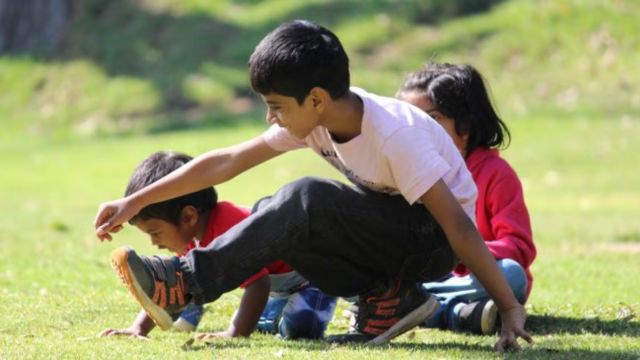
There are certain dates that trigger a repeated sense of fear and insecurity – 26/11 is one such date etched in India’s collective memory as the day when terror took over Mumbai. But there is one more 26/11 memory that I wish I could forget, but that remains as a personal memory of pain – as a citizen and as a father.
A six-year-old boy asked to enact the role of a villain despite his pleas to let him play a commando seems fair game, doesn’t it? After all, every young child wants to be the hero, and someone does have to be a villain. Except that the six-year old was assigned the role because he was a Muslim. It was November 26, 2018, when my son came home crying that he had been made the “bad guy” in a game with his friends. It would have been fine if it ended there, but he had also been called a Pakistani, an enemy of India. My son did not know that it was his first brush with communalism.
As a new-age parent, there is a lot one has to learn and unlearn in order to keep pace with the demands of modern parenting and to ensure that the child gets a conducive environment to learn, question, agree and disagree with the world around her/him. We make sure that the content they consume online is age appropriate; we try to befriend them so that they are comfortable enough to share their insecurities with us. These are check-boxes common to all parents, irrespective of religion. But there is an added layer to parenthood if you are Muslim.
When my son asked me why he had been called a Pakistani, I had no answer. I know the deep-seated prejudice it comes from. But how does one prepare a child for a world where he will be identified by the religion he belongs to, or the food he eats? How does a parent tell a child that, as he grows up, it might be dangerous to be friends with a girl child from a different community?
These are the questions I grapple with, and the answer is not easy. As space for nuance in public discourse shrinks, should I just tell him to ignore the bigotry that is being perpetuated in the name of nationalism? Or, make him understand that the Constitution guarantees equality for all in our country? The answer is obviously the latter, but how much of that truth percolates down in every-day life?
An entire generation is growing up on a cocktail of competitive religiosity and performative nationalism. They hear these conversations at the dinner table and among peers. Television and social media tell them to “identify their enemies” at an age when they don’t even know who their friends are. These are uncomfortable times. After the Pahalgam attack in April, Muslim friends of my son were called “Pahalgamwalon” by others in their cohort. It was meant to be a joke. It did not land, especially for the kids at the receiving end of what was supposedly friendly banter.
Should our nationalism be defined by the level of hate one harbours for a neighbouring country that has a specific religion, and, by extension, for those who follow the same religion everywhere, including in our own country? These are questions I find myself asking as a parent.
Sad as it is, it is utopian to think that India of the 21st century will not see discrimination based on caste, colour and religion. But, as adults, as parents, we have to try harder to make the world a more equal place. Nationalism cannot be exclusionary, its canvas has to necessarily be more inclusive, more accepting of India’s diversity. There cannot, and must not, be any difference in the values of nationalism we preach to our children and the one embodied in our Constitution.
With my son poised to enter teenage soon, I have chosen to answer his queries and my doubts the only way I can. I have handed him a copy of the Constitution of India. This will prepare him to understand his rights and responsibilities as a citizen who is as equal as any other person in this country. It will teach him not to be defensive about his religion, to be unapologetic about who he is. As a father, that is the best talisman I can give him to ensure that his mind is “without fear and the head is held high”.
wali.ahmad@indianexpress.com